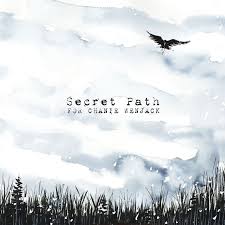Gord Downie – Secret Path (Arts and
Crafts)
Happy Hallowe’en! Feliz Dia de los
Muertos! Two of Canada’s greatest poets would like to talk to you about death:
their own and others’.
One is 82 years old: his body is failing
him and he’s made a meditation on mortality that’s easily one of the finest
records he’s ever made. The other is 52 with a diagnosis of terminal brain
cancer: he’s processing his own death by atoning for the death of another, a
12-year-old boy who died trying to escape abuse at a government-sanctioned
institution.
Cohen’s record is a revelation. He’s
been this dark before, he’s made records this sparse before, his wry wit has
always been in evidence. Here, however, every moment here carries great weight,
lyrically and sonically. It’s as slick as anything he’s done in the last 35
years, but with largely acoustic instruments in place of synths.
Great credit must go to Cohen’s son,
Adam, who sat in the producer’s chair. Adam has (justifiably) taken a lot of
flak for his own records, but it turns out he’s an excellent producer,
judiciously employing only the most appropriate window dressing for the
skeletons of blues and country songs his father wrote this time out. There’s
the rumbling bass and the choir of Jewish cantors on the devastating title
track; the twangy, Twin-Peaksish
guitar on “Leaving the Table”; the familiar sound of female backing singers on
“Traveling Light” (one of only two tracks where that classic Cohenesque
embellishment appears); the weeping violins.
Both of Cohen’s recent comeback
records—2012’s Old Ideas, 2014’s
Popular Problems—have proven him to be as powerful as he is prolific in his
third act, but this one is on a whole other plain. He claims he’s still writing
and has more music he wants to finish. As insatiable as Cohen fans are, one
can’t help but secretly—and, morbidly—hope that this is his final will and
testament.
Supplementary reading:
David Remnick’s New
Yorker piece
Brian D. Johnson’s Maclean’s piece
 Gord Downie told the Globe
and Mail, “If Secret Path is the last thing I ever do, I’ll be happy.”
Gord Downie told the Globe
and Mail, “If Secret Path is the last thing I ever do, I’ll be happy.”
He’s already succeeded on one level:
he’s taken a long-forgotten tragic tale, that of a 12-year-old boy, Chanie
Wenjack, who died of exposure, beside train tracks, trying to walk 600 km home
from a residential school. That was exactly 50 years ago; a Maclean’s
story was written about it the case after an inquest took place—an inquest
whose recommendations, of course, went unheeded. Unless you’ve had a media
blackout for the last month, you probably already know that this album comes
with a graphic novel by Jeff Lemire (Essex County) and an animated
film. There are several other Wenjack projects out there as well, including
a Joseph Boyden novella; Boyden also talks about the case on the new Tribe
Called Red album.
There’s a lot to unpack here: but
what about the music? The production by Broken Social Scene’s Kevin Drew and
the Stills’ Dave Hamelin is crisp and sparse, in ways that sound like nothing
else Downie has ever recorded. The result is that his voice sounds fantastic;
it’s unclear if he’s become a better singer, or if he’s just never allowed us
to hear him like this, not even during the most fragile moments of his
discography both in and outside the Tragically Hip, not even 2001’s Coke Machine Glow. Drew and Hamelin know
how to create vast soundscapes with minimal instrumentation, the right synths
and plenty of reverb, evoking the appropriate sense of isolation and empathy
necessary for the subject matter.
The lyrics are curious. Gord Downie
never does anything directly; hell, even that song about Bill Barilko is
narrated by some young punk feigning experience, a trait that’s personified in
his makeshift, faux fifty-mission cap. Secret
Path does not tell the story of Chanie Wenjack, at least not a narrative
recognizable to anyone who read the Maclean’s
story that inspired the album. Instead, it draws some elements of Wenjack’s
story—like the fact he set out on the final leg of his journey with only seven
matches in a jar and a windbreaker to provide him warmth—and extrapolates on
them. If you heard any track here out of context, you’d be hard pressed to link
it to Wenjack or, in fact, anything remotely related to issues illuminated by
the Truth and Reconciliation Commission. The good news: it’s not a preachy
record, not in the least. The bad news: it’s unclear how effective it is as a
teaching tool, which was the intention of Downie and his brother Mike, a
filmmaker.
But because this is Gord Downie in
2016, immediately after he was the centre of one of the landmark cultural events of this
generation, he has our ears. And he’s using the moment to not necessarily tell
the story, but to draw our attention to a story mainstream Canada has not
wanted to tell.
Stream Leonard Cohen: “You Want It
Darker,” “Leaving the Table,” “Traveling Light”
Stream Gord Downie: “The Stranger,”
“Seven Matches,” “Son”

No comments:
Post a Comment